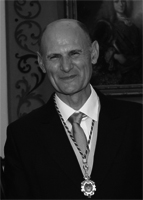Izpisúa Belmonte, Juan Carlos

CURRICULUM VITAE
Personal Information:
Name: Juan Carlos Izpisua Belmonte
Address: The Salk Institute for Biological Studies
Gene Expression Laboratory
10010 North Torrey Pines Road
La Jolla, CA 92037-1099
USA
Telephone: (858) 453-4100, Extension 1130
Fax: (858) 453-2573
E-mail: belmonte@salk.edu
Date of Birth: December 16, 1960
Place of Birth: Hellín, Spain
Degrees:
1980-1985 University of Valencia, Spain. M. Sc. (Honors). Pharmacy
1985-1987 University of Bologna, Italy and University of Valencia, Spain
Ph.D. Graduate Student. Biochemistry and Pharmacology
Prof. José Cabo
Positions:
1987-1988 University of Marburg, Germany. Postdoctoral Fellow, Prof. Miguel Beato
1988-1991 European Molecular Biology Laboratories (EMBL). Heidelberg, Germany, Postdoctoral Fellow, Prof. Denis Duboule
1988-1991 University College, London. London, England, Visiting Fellow, Prof. Lewis Wolpert
1988-1991 Oxford University. Oxford, England, Visiting Fellow, Prof. Claudio Stern
1992-1993 University of California, Los Angeles, USA. Postdoctoral Fellow,
Prof. Eddy De Robertis
1993-1998 The Salk Institute, San Diego, USA. Assistant Professor
1993- University of California, San Diego, USA. Adjunct Professor
1998- 2000 The Salk Institute, San Diego, USA. Associate Professor
2000- The Salk Institute, San Diego, USA. Professor
2005-2013 Center of Regenerative Medicine, Barcelona, Director
Scientific Interests:
Dr. Izpisua Belmonte’s area of research is focused on the understanding of stem cell biology, organ and tissue development and regeneration. His observations include uncovering the role of some homeobox genes in limb patterning and specification, as well as the identification of the molecular mechanisms that determine how the different cell type precursors of internal organs are organized spatially along the embryonic body axes. During the last few years he has made seminal discoveries in the field of tissue and organ regeneration, the differentiation of human stem cells into various tissues, and the molecular basis underlying aging and somatic cell reprogramming and (epi)genetic editing. These observations may help towards the discovery of new molecules as well as specific cell based treatments for a wide variety of diseases afflicting mankind.
Ingreso
Fecha de Ingreso: 11/05/2016
Discurso de Ingreso: "Trasplante de Órganos y Células Madre: ¿Realidad o Quimera?"
Contestación: Excmo. Sr. D. Rafael Sentandreu Ramón
